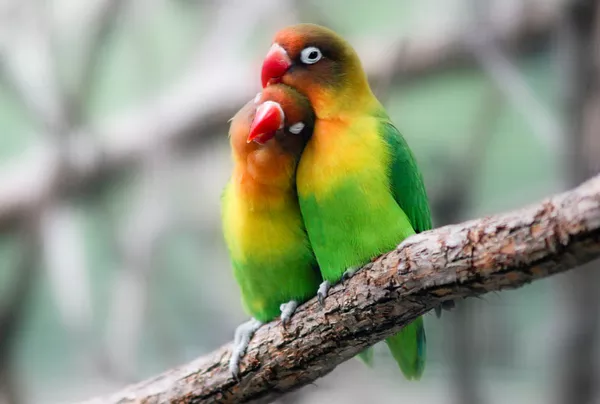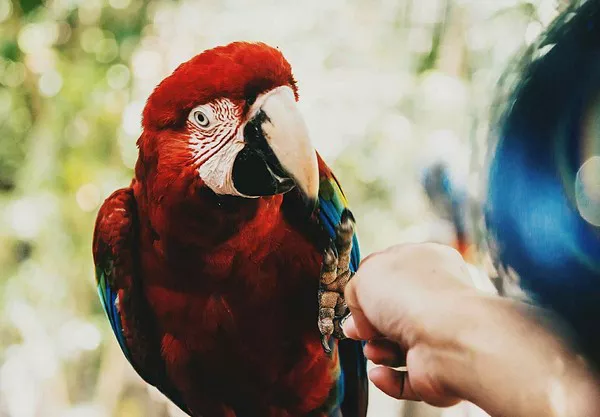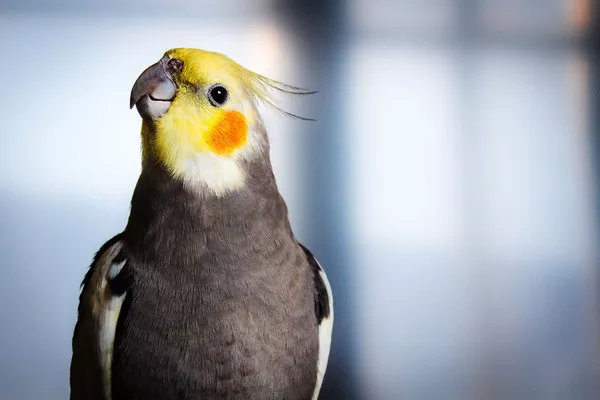Sphynx cats are among the most distinct and intriguing breeds in the feline world. Known for their lack of fur, large ears, and affectionate nature, Sphynx cats have gained popularity as household companions. But for potential pet owners considering adopting one of these curious cats, one question often arises: Do Sphynx cats meow a lot?
This article explores the characteristics of Sphynx cats, their vocal tendencies, and how they communicate. We’ll delve into the factors influencing their meowing behavior and provide insights on what to expect if you decide to bring a Sphynx cat into your home.
The Unique Sphynx Cat
To understand whether Sphynx cats meow a lot, it’s essential to first appreciate their unique traits. The Sphynx is not just another hairless cat breed; it is known for its loving personality, sociable nature, and striking appearance. The lack of fur is one of the breed’s most distinctive features, but it is their behavior and temperament that set them apart from other cats.
Origin of the Sphynx
The Sphynx cat’s history dates back to the late 1960s in Canada. The breed began with a hairless kitten named Prune, born in Ontario. Prune’s mother was a domestic cat, and he was the result of a spontaneous genetic mutation. As the popularity of this unique kitten grew, breeders began to work to establish the hairless trait in a stable lineage. This marked the foundation of the Sphynx breed.
Despite their unusual appearance, the Sphynx cat is known for being friendly and outgoing. Their lack of fur doesn’t make them aloof or independent; instead, they tend to form strong bonds with their human companions and often seek attention and affection.
The Personality of a Sphynx Cat
Before we focus on their vocal behavior, it’s important to understand the personality traits of a Sphynx cat, as these can influence how often they meow. Sphynx cats are typically described as:
Affectionate and Social: Sphynx cats are often regarded as “dog-like” in their devotion to their owners. They love to interact with their human families and often enjoy being held, cuddled, or even carried around. They are not the type of cats to hide away in a corner or spend too much time alone.
Curious and Playful: These cats are highly curious and enjoy exploring their environment. They are energetic and playful, often engaging in games and activities with their human companions. Their playful nature can lead to them becoming more vocal when they are seeking attention or stimulation.
Intelligent and Trainable: Sphynx cats are known for their intelligence. They can learn tricks, and many owners have trained their Sphynx cats to fetch, respond to their names, or even walk on a leash. This intelligence may also contribute to their vocalizations, as they may learn to communicate in different ways to get what they want.
Affectionate with Other Pets: Sphynx cats are typically friendly with other pets, including dogs and other cats. Their sociable nature allows them to coexist with other animals in the household, often engaging in playful interactions. However, their need for attention may lead them to vocalize more if they feel neglected by their fellow pets.
Understanding Meowing in Cats
To answer the question of whether Sphynx cats meow a lot, we must first explore why cats meow in general. Unlike many animals, cats are not naturally inclined to vocalize excessively. While wild cats, such as lions and tigers, do not meow to communicate, domestic cats have adapted their behavior to communicate more with humans.
Cats meow for a variety of reasons, and each cat may have a different frequency or style of meowing depending on their personality, environment, and needs. Common reasons for meowing in cats include:
Attention-seeking: Cats often meow to get attention from their owners. This could be for petting, playing, or even to request food. Since Sphynx cats are particularly affectionate and love to be the center of attention, they may be more prone to vocalizing when they seek human interaction.
Hunger or Thirst: Cats will often meow when they are hungry or thirsty, signaling their needs to their owners. If you are late in feeding your Sphynx cat, you may hear them meowing more frequently as a gentle reminder.
Discomfort or Illness: A sudden increase in meowing can sometimes indicate that your cat is in discomfort or pain. Cats meow to express their discomfort, and it’s important to monitor the tone and frequency of their meows in these cases. If your Sphynx cat is meowing excessively and seems unwell, it’s advisable to consult with a veterinarian.
Boredom: Cats are intelligent animals that need stimulation. If they are not provided with enough toys, interactions, or mental challenges, they may vocalize to express their boredom. Sphynx cats, being playful and active, may meow more if they are not adequately entertained.
Stress or Anxiety: Meowing can also be a sign of stress or anxiety in cats. Changes in their environment, such as moving to a new home, a new pet, or loud noises, can make a cat feel unsettled. A stressed Sphynx cat may meow more frequently in an attempt to soothe itself or get attention from its owner.
Greeting: Some cats meow simply as a form of greeting when their owners come home. This can be a way for them to express their excitement at seeing their favorite human after an absence.
Do Sphynx Cats Meow a Lot?
Given their personality traits, Sphynx cats are known to be more vocal than many other breeds. However, this does not mean they are constantly meowing. Their vocalizations are often influenced by their need for interaction, affection, or their desire to communicate.
Factors That Influence Meowing in Sphynx Cats
Attention Needs: As affectionate cats, Sphynx cats are more likely to meow for attention compared to more independent breeds. If you are not giving them enough attention, they may meow to get your attention. Their vocalizations are often accompanied by gestures such as rubbing against your legs or jumping into your lap.
Playfulness and Stimulation: Sphynx cats have high energy levels, and if they are not mentally or physically stimulated, they may vocalize more to get their human companions to engage in play. Providing plenty of toys, interactive playtime, and new experiences will help keep them occupied and may reduce unnecessary meowing.
Affection: Since Sphynx cats are so affectionate, they may meow when they want to be close to you. If you’re busy with work or other tasks, you may hear your Sphynx cat meowing as a reminder that they would like to snuggle, play, or just spend some quality time together.
Communication Style: While some cats meow in short bursts, Sphynx cats tend to have a distinctive, loud, and sometimes raspy voice. This can make their meows seem more frequent and noticeable, even if they aren’t meowing all the time. This vocalization style may vary from cat to cat, with some being more chatty than others.
Health and Environment: Changes in your Sphynx cat’s environment, routine, or health can also influence how much they vocalize. For example, if they are feeling unwell, stressed, or anxious due to a move or other changes, they may meow more than usual. It is essential to monitor any changes in meowing patterns to determine if they are related to stress or a potential medical issue.
Age and Experience: Kittens, like human children, tend to meow more as they learn to communicate with their environment and caregivers. An older Sphynx cat may vocalize less frequently once they have formed stronger bonds with their human companions and become more comfortable in their environment.
Are Sphynx Cats Noisier Than Other Breeds?
Compared to more reserved or independent breeds, Sphynx cats are often considered to be more vocal. Breeds like the British Shorthair, Scottish Fold, or Russian Blue tend to be quieter and may meow less frequently. However, when compared to breeds known for their vocal nature, like the Siamese or the Abyssinian, Sphynx cats are somewhat in the middle of the spectrum.
In general, Sphynx cats do not excessively meow, but they are known for their chattiness when they want something. If you are the type of person who enjoys interaction with your cat, a Sphynx will likely meet your expectations for vocal communication.
Managing Excessive Meowing in Sphynx Cats
If your Sphynx cat meows more than you’d like, there are several strategies you can use to reduce the frequency of their vocalizations:
Provide Regular Playtime: Sphynx cats thrive on interaction. Regular play sessions will tire them out and reduce the need for attention-seeking meows.
Establish a Routine: Cats are creatures of habit, and Sphynx cats are no exception. Providing them with a consistent feeding schedule, regular playtimes, and a comfortable resting area can help them feel secure and reduce vocalizations related to uncertainty.
Ensure Their Basic Needs Are Met: Make sure your Sphynx cat’s basic needs—such as food, water, and litter box access—are always met. If they are meowing for something, it’s often a signal that they want something from you.
Provide Environmental Enrichment: A bored cat is a vocal cat. Invest in a variety of toys, scratching posts, climbing structures, and puzzle feeders to keep your Sphynx cat mentally and physically stimulated.
Observe Their Health: If your cat suddenly begins to meow excessively and shows other signs of discomfort, such as lethargy, lack of appetite, or changes in behavior, consult with a veterinarian to rule out health issues.
Conclusion
In summary, Sphynx cats are affectionate, energetic, and sociable companions, and they are more likely to meow compared to other less vocal breeds. Their meowing is often related to their need for attention, playtime, or affection, and is usually a sign that they are trying to communicate with their human companions. While Sphynx cats may meow more than some other breeds, they are generally not excessively noisy unless there is an underlying issue such as boredom, hunger, or health concerns.
By understanding the reasons behind their vocalizations and providing adequate care, stimulation, and attention, you can ensure that your Sphynx cat remains happy and content without too much excessive meowing. Whether you are a first-time cat owner or a seasoned pet parent, a Sphynx cat will make a charming and engaging addition to your home—meows and all.
Related Topics:

























